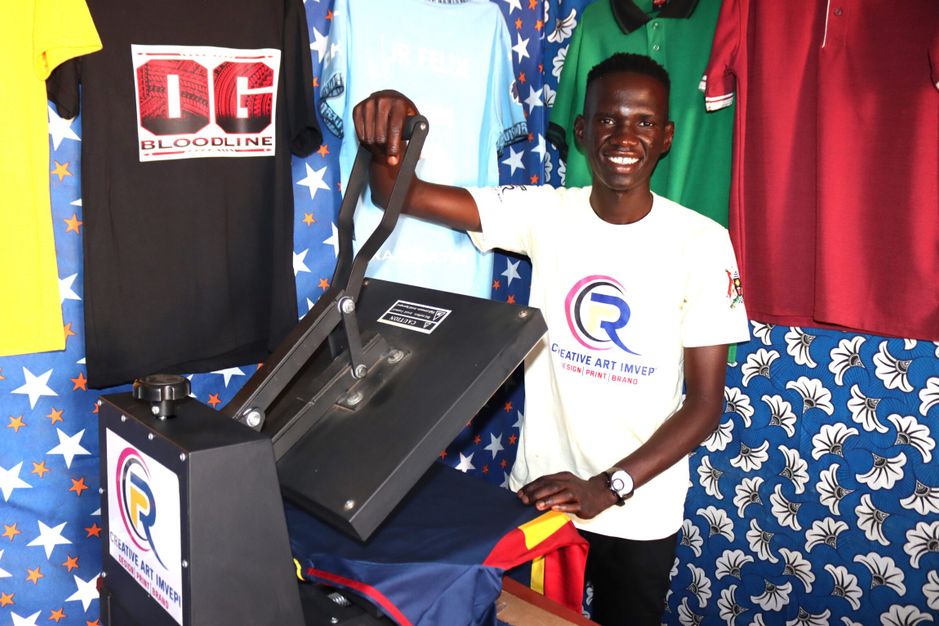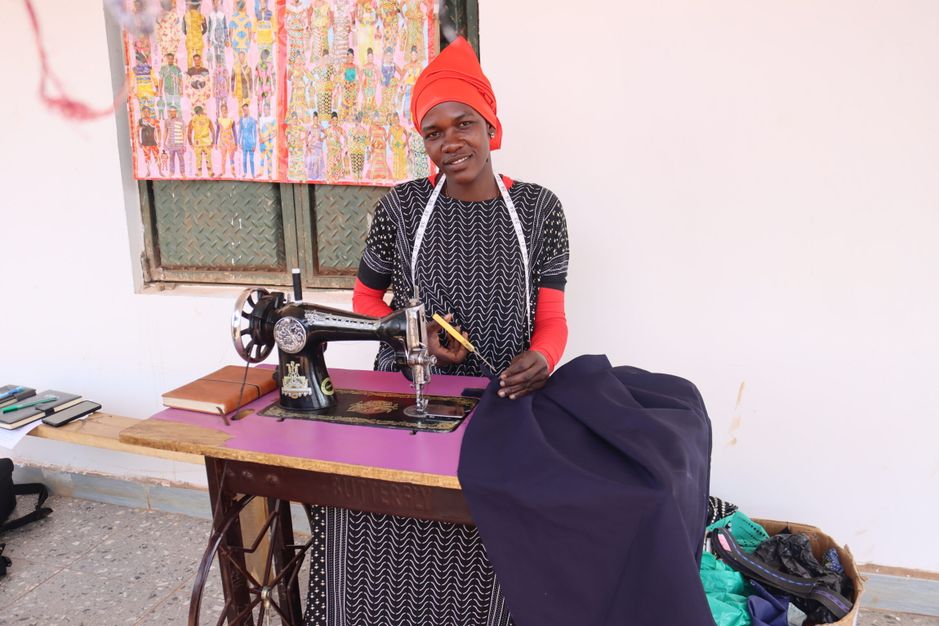Overcoming hard times
Ajiko Kadibara, 28, from Yumbe District, once found herself trapped in a cycle of financial hardship. Despite completing the Uganda Certificate of Education-Senior 4, her dreams of further education were shattered when her father passed away, leaving her without school fees. Marriage seemed like the only way forward, but soon, the struggle to provide for her growing family became overwhelming.
“Life was tough,” she recalls. “My husband worked as a boda boda rider (motor cyclist), but his income wasn’t enough for our family of seven. I had no job, no skills, and no way to contribute financially.”
A Glimpse into Yumbe: A District in Need
Ajiko’s situation shows the reality of many young women in Yumbe District, a home to over 206,626 refugees as of March 2025. As one of Uganda’s major refugee-hosting districts, Yumbe faces massive pressure on its resources. Women and girls, in particular, struggle with limited access to education, scarce economic opportunities, and the persistent impact of gender-based violence and displacement. In a community where sustainable employment is hard to come by, financial independence remains out of reach for many until stories like Ajiko’s begin to shift the narrative.
Vocational Training Through the RETI Program
When Ajiko came across an advert by DCA Uganda for vocational training, she saw a chance to change her story. “I had always admired my sister, who was a tailor, but I never knew how to use a sewing machine. When the opportunity for training at St. Peter’s Tailoring and Business School came, I grabbed it immediately.”
Through the Refugee and Host Community Youth Empowerment and Transformation Initiative (RETI) program, young people in Yumbe were trained in various trades, including tailoring, welding, catering, and shoemaking. For Ajiko, tailoring was a perfect fit. “I did my research and found that there was a high demand for tailoring services in Yumbe town council. Whether it’s school uniforms, ready-made dresses, or repairs, there’s always a market.”
Gaining Skills and Building Confidence
During the training, Ajiko mastered the art of sewing, from designing custom clothes to styling them professionally. “At first, I didn’t even know how to use a tailoring machine, but now I can confidently sew dresses, shorts, skirts, tops, and school uniforms,” she says.
Upon completing the course, her husband supported her by buying a sewing machine. She took a bold step and invested UGX 250,000 in Diira African fabrics and UGX 100,000 in Kitenge materials to kick-start her business. The response from the community was overwhelming.
A flourishing business and financial independence
“People love my designs,” Ajiko beams. “They keep encouraging me to rent a shop and expand my business. Some even tell me to buy more machines so I can train other young women in the community.”
Financially, the impact has been profound. “Before, when my husband gave me money for food, it was never enough. Now, if we are short, I can contribute. I can also dress well and take care of myself. I no longer have to ask for money from friends, because I have my own.”

Bigger dreams and greater impact
Ajiko has ambitious plans for the future. “I want to expand my business by buying more sewing machines and fabrics, including materials for uniforms. I also need a buttonhole machine, an overlock machine, and a proper cutting table since I currently cut materials on the floor, which customers don’t like.”
Beyond business growth, she aspires to become an artisan trainer, helping other young people acquire skills and financial independence. “I call upon other organizations to support young women like me who are eager to learn and grow.”
Ajiko urges other young people to take advantage of programs like RETI. “When I was jobless, I had no choice but to depend on my husband. Now, I have financial independence, and my marriage is more peaceful because I can contribute to our household. I encourage others to grab such opportunities and change their lives.”
Community impact in Yumbe
Embatia Joel Asia, a Community-Based Facilitator in Yumbe Town Council, emphasizes the broader impact of vocational training. “Previously, many young people were idle, leading to high crime rates like theft. But now, thanks to the RETI project, many have become self-employed and responsible members of society.”
He also notes a shift in attitudes toward education. “Most youth in Yumbe drop out by P.5 or P.6. However, vocational training has given them an alternative. Many are eager to take up three-month courses, which equip them with skills to start earning a living.”
Ajiko’s journey from despair to financial independence is a powerful example of how vocational training can transform lives. With determination, skill, and community support, she has stitched a new future—not just for herself but for those around her.
Goals of RETI
By 2027, the DCA RETI project is expected to have achieved the following results:
18000 young people equipped with market-relevant business and life skills (60% young women and 70% refugees)
500 YSLAs established and digitized
200 YSLAs linked to financial institutions
3600 young people provided with business incubation support
750 young people provided with innovation grants; and Policies developed /reviewed and executed



